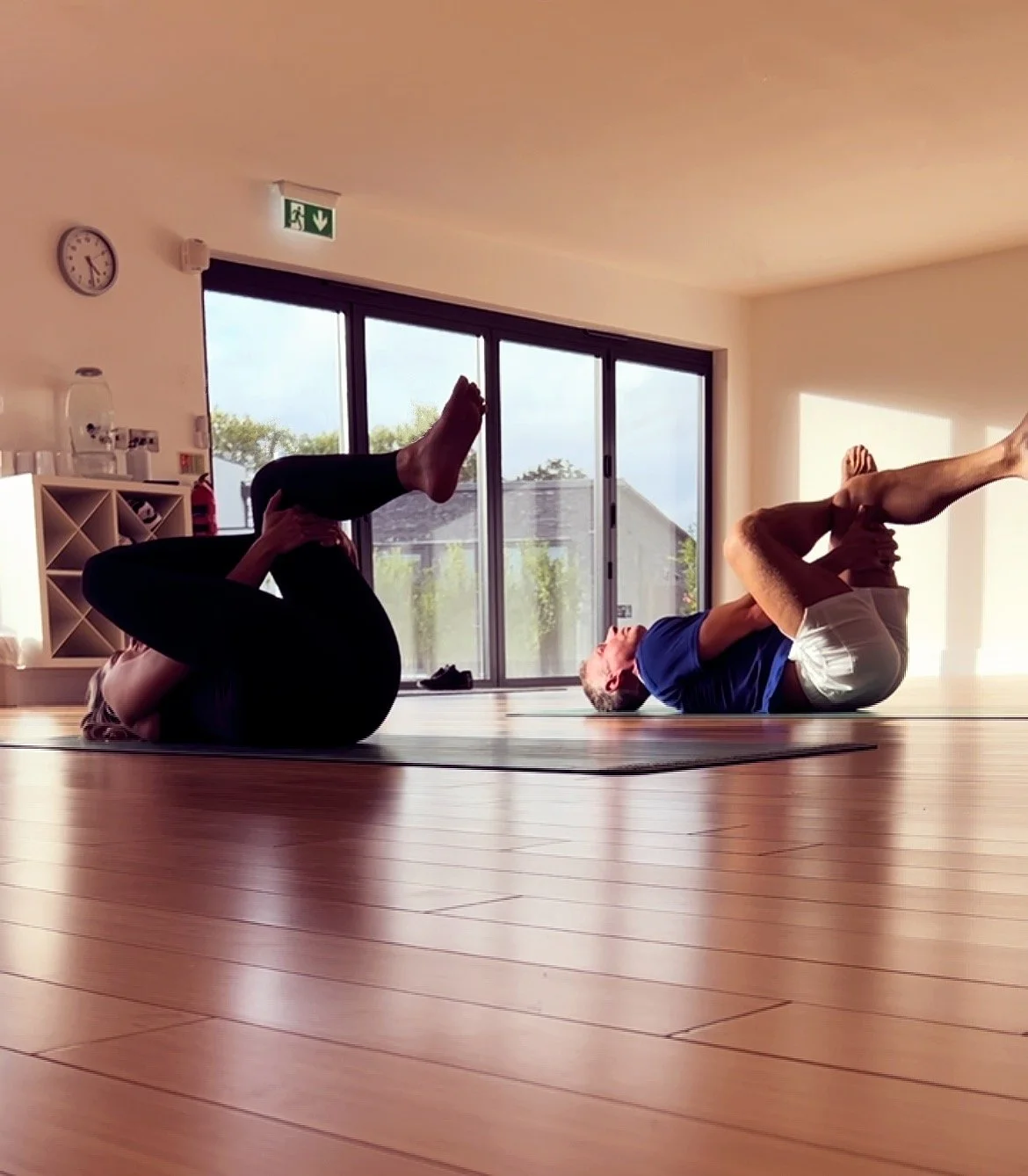Fostering a deeper connection with your partner and enhancing overall well-being.
Practicing yoga with your partner can have numerous physical, mental, as well as emotional benefits, fostering a deeper connection and enhancing overall well-being. Here are some significant aspects of practicing yoga together:
Shared Experience and Bonding: Yoga is a shared journey that allows couples to connect on a deeper level. Engaging in a practice together creates a unique shared experience, promoting a sense of togetherness and unity. The partner dynamic adds an extra layer of support and encouragement, reinforcing the idea that you are in this journey of self-discovery together.
Enhanced Communication: Yoga often involves synchronized movements and breath, requiring communication and cooperation between partners. This can improve non-verbal communication skills, heighten trust, creating a sense of unity. Couples learn to move in harmony, mirroring each other's energy and creating a flow that extends beyond the yoga mat into their daily lives.
Physical intimacy and trust: Partner yoga poses often involve physical touch and support. This tactile connection can increase feelings of intimacy and trust between partners. As individuals learn to rely on each other for balance and strength, they build a greater sense of security and mutual dependence, both physically and emotionally.
Stress reduction and relaxation: Yoga is well-known for its stress-relieving benefits. When couples practice yoga together, they create a shared space to unwind and release tension. The calming nature of yoga can help both partners relax, fostering a tranquil environment that promotes open communication and emotional connection.
Improved flexibility, strength and health: Regular yoga practice enhances flexibility, strength and overall physical health. When couples engage in yoga together, they motivate each other to stay committed to their health and wellness goals. The shared commitment to a healthy lifestyle can have a positive impact on various aspects of their lives.
Cultivating mindfulness: Yoga encourages mindfulness—a heightened awareness of the present moment. Practicing mindfulness together can lead to a more profound understanding of each other's thoughts and feelings. This increased awareness can contribute to better emotional support and a more harmonious relationship.
Fun and playfulness: Partner yoga often involves playful elements and a sense of lightness. Laughing together during a practice can create a positive and joyful atmosphere. The playful nature of partner yoga can break down barriers and promote a sense of ease and enjoyment in the relationship.
Practicing yoga with your partner is not just about physical fitness; it's a holistic approach to nurturing your relationship. By sharing the journey of self-discovery, cultivating mindfulness and fostering trust and communication, couples can experience a more profound connection that extends beyond the yoga mat into their everyday lives.
